Water-use efficiency and transpiration efficiency of wheat under rain-fed conditions and supplemental irrigation in a Mediterranean-type environment

Authors:
Growth and water use were measured in wheat (Triticum aestivum L.) grown in northern Syria in a typical Mediterranean climate over five seasons 1991/92-1995/96. Water use was partitioned into transpiration (T) and soil evaporation (E-s) using Ritchie's model, and water-use efficiency (WUE) and transpiration efficiency (TE) were calculated. The aim of the study was to examine the influence of irrigation and nitrogen on water use, WUE and TE. By addition of 100 kg N ha(-1), E-s was reduced from 120 mm to 101 mm under rain-fed conditions and from 143 mm to 110 mm under irrigated conditions, and T was increased from 153 mm to 193 mm under rain-fed conditions and from 215 mm to 310 mm under irrigated conditions. Under rain-fed conditions, about 35% of evapotranspiration (ET) may be lost from the soil surface for the fertilized crops and 44% of ET for the unfertilized crops. Transpiration accounted for 65% of ET for the fertilized crops and 56% for the unfertilized crops under rain-fed. As a result of this, WUE was increased by 44% for dry matter and 29% for grain yield under rain-fed conditions, and by 60% for dry matter and 57% for grain yield under irrigated conditions. Transpiration efficiency for the fertilized crops was 43.8 kg ha(-1) mm(-1) for dry matter and 15 kg ha(-1) mm(-1) for grain yield, while TE for the unfertilized crops was 33.6 kg ha(-1) mm(-1) and 12.2 kg ha(-1) mm(-1) for dry matter and grain yield, respectively. Supplemental irrigation significantly increased post-anthesis water use, transpiration, dry matter and grain yield. Water-use efficiency for grain yield was increased from 9.7 to 11.0 kg ha(-1) mm(-1) by supplemental irrigation, although WUE for dry matter was not affected by it. Irrigation did not affect transpiration efficiency for grain yield, but decreased transpiration efficiency for dry matter by 16%. This was associated with higher harvest index as a result of good water supply in the post-anthesis period and increased transpiration under irrigated conditions.
